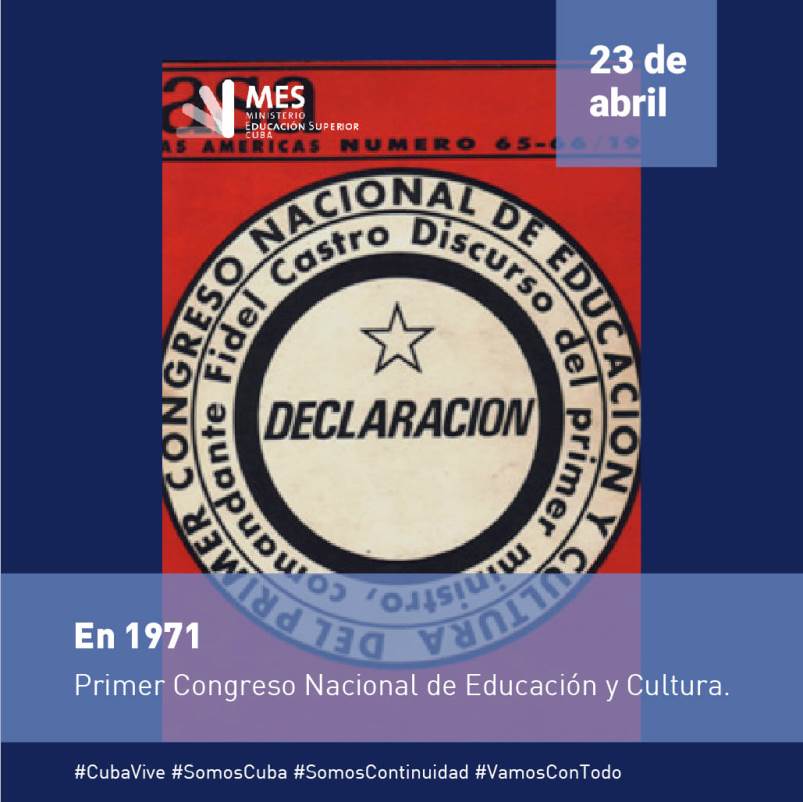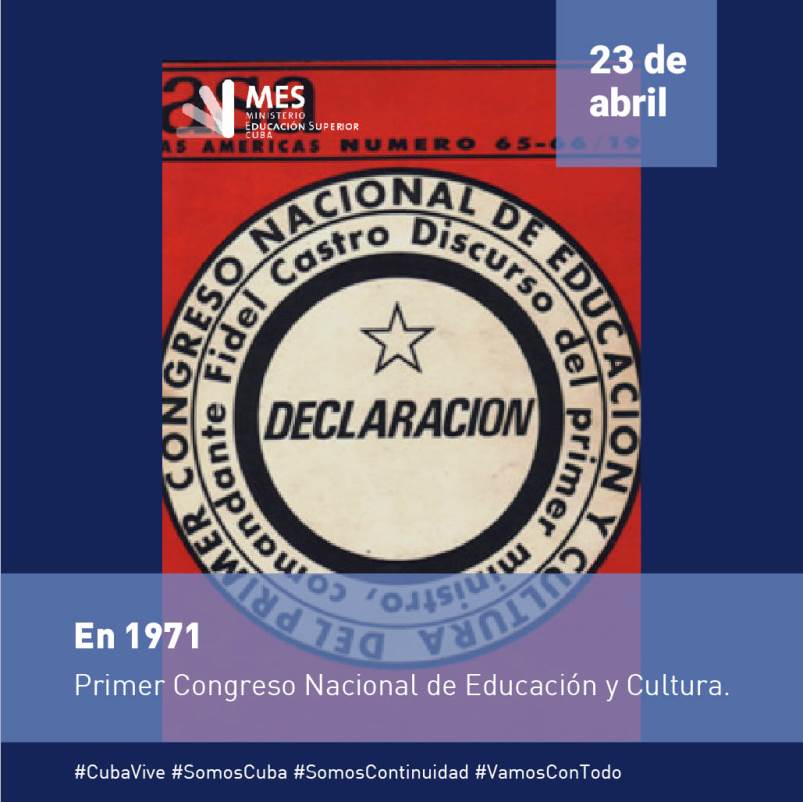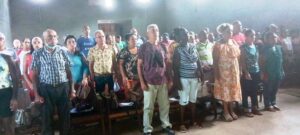First Congress of Education and Culture held by the Cuban Revolution.

On April the 23rd, 1971, the First National Congress on Education and Culture began in Havana, an event that constituted one of the most relevant events held in Cuba in the decade of the 70’s of the 20th century.

On April the 23rd, 1971, the First National Congress on Education and Culture began in Havana, an event held twelve years after the triumph of the Revolution and which constituted one of the most relevant events held in Cuba in the decade of the 1970s.
This significant meeting, in which some 1,700 delegates from the country participated with 413 papers, summoned the Cuban society of that time to reflect and discuss the issue of education, at a time when the country had overcome illiteracy and new goals were projected.
During the days of the event, the defense of teachers prevailed over the criteria and interests of the children of workers throughout the Island, which is why the historic leader of the Revolution, Fidel Castro, characterized it as an unquestionable leap in quality, which brought to the forefront the importance of education.
This was made explicit in the words he expressed at the closing ceremony, «This Congress will contribute to extraordinarily raise the dignity of educators, this Congress will raise before the conscience of all the people the role of educators as a recognition of their work and, also, as a recognition of their sense of duty».
Referring to the countless issues that had been discussed at the conclave, to the thousands of recommendations related to techniques, evaluations and practical problems and methodologies, the Commander in Chief emphasized aspects of great relevance.
Read here … Speech at the closing ceremony of the First National Congress of Education and Culture
Some of Fidel’s postulates are still fully valid today, when the country is constantly calling for debate and reflection in all social spheres and also to maintain unity around the social and humanist project that we are building and defending and against cultural colonialism.
Since then to date, the Greater of the Antilles has hosted other congresses and events that have contributed to the development of the national culture and have also shown the level reached by Cuban artists, intellectuals, groups and institutions in this important sphere that is very conducive to the spiritual welfare of human beings and the integral formation of citizens.
Written by Yovana Baró Álvarez.




